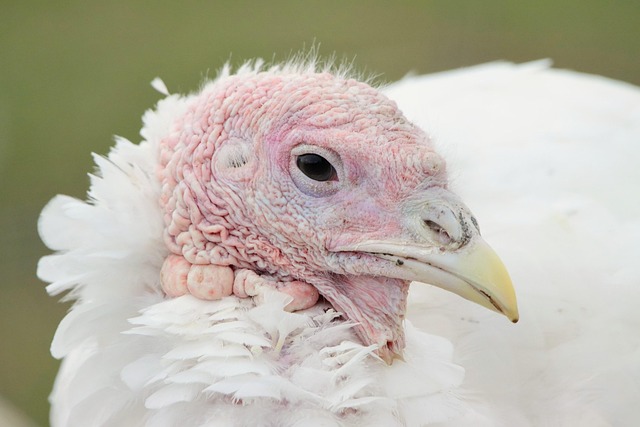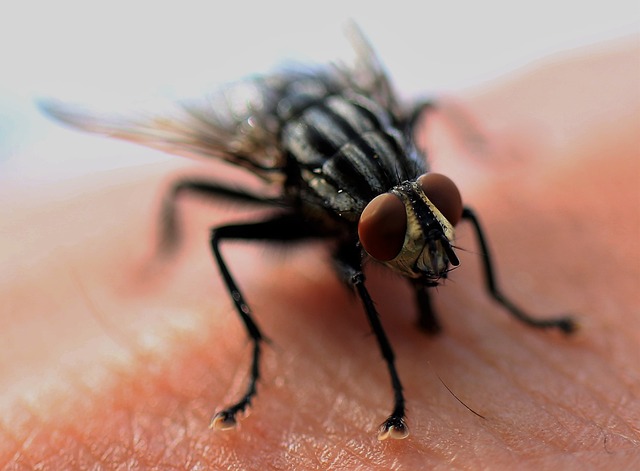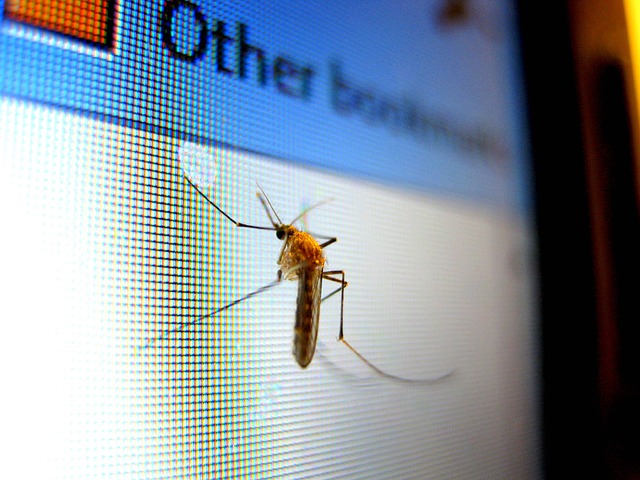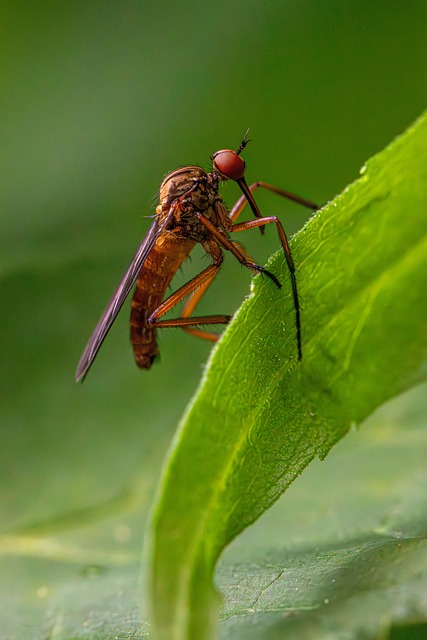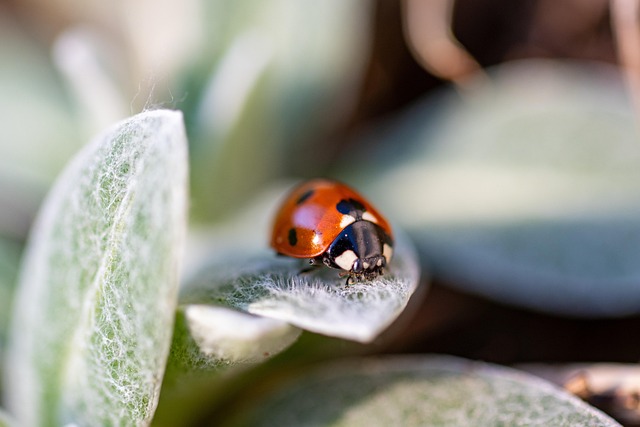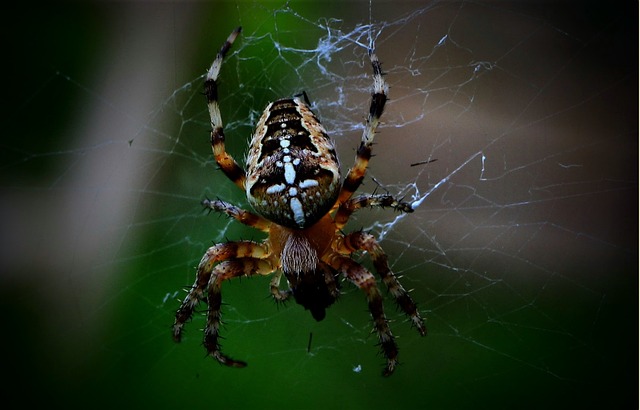Rodent infestations in Essex County Ontario are common due to the pests' adaptability. Signs in…….
Category: Pest control experts
Professional wildlife removal and pest control company serving Windsor, Essex County, Sarnia, and Chatham-Kent. Over 30 years experience providing emergency animal control, pest management, animal proofing, and clean-up services for residential and commercial properties.
Pest Control Experts: Navigating the Global Landscape
Introduction
In the realm of environmental management, pest control experts play a pivotal role in maintaining ecological balance and protecting agricultural productivity. This comprehensive article delves into the multifaceted world of these specialists, exploring their definition, global impact, economic significance, technological innovations, regulatory frameworks, challenges, and future prospects. By examining these aspects, we aim to provide valuable insights for both professionals in the field and those seeking a deeper understanding of pest management.
Understanding Pest Control Experts: A Definition and Historical Perspective
Definition: Pest control experts are specialized professionals who employ integrated pest management (IPM) strategies to prevent, monitor, and control pests—including insects, rodents, weeds, and other organisms—that can cause harm to agriculture, ecosystems, and human health. Their expertise encompasses a wide range of techniques, from biological controls and cultural practices to chemical treatments, all aimed at minimizing the use of harmful pesticides.
Historical Context: The roots of modern pest control can be traced back to ancient times when farmers used natural predators and organic compounds to manage pests. However, it was during the mid-20th century that the field witnessed a significant evolution with the introduction of synthetic pesticides. Over time, concerns about the environmental and health impacts of these chemicals led to the development of IPM, which is now considered the most effective and sustainable approach to pest management.
Significance: Pest control experts are essential in ensuring food security, preserving ecosystems, and promoting sustainable agricultural practices. Their work helps reduce crop losses, minimizes the negative effects of pesticides on non-target organisms, and contributes to the overall health and biodiversity of ecosystems.
Global Impact and Trends
International Influence: Pest control expertise is a global concern, with professionals collaborating across borders to address shared challenges. International organizations, such as the Food and Agriculture Organization (FAO) of the United Nations, play a crucial role in fostering knowledge sharing, providing technical assistance, and promoting sustainable pest management practices worldwide.
Regional Differences: The impact and trends in pest control vary across regions due to distinct environmental conditions, agricultural systems, and economic factors. For instance:
- North America and Europe: These regions have well-established pest management industries, focusing on advanced technologies, precision agriculture, and integrated pest control strategies.
- Asia: With a significant portion of the world’s population, Asia faces unique challenges in food security and pest control. Rapid urbanization and intensifying agricultural practices drive the demand for efficient and cost-effective solutions.
- Africa: The African continent, characterized by diverse ecosystems and varying climatic conditions, requires tailored pest management approaches. Local experts are instrumental in developing sustainable strategies that align with cultural practices and limited resources.
Economic Considerations
Market Dynamics: The global pest control market is a dynamic sector, driven by factors such as rising food demand, increasing crop yields, and growing awareness of environmental sustainability. According to a 2022 report by Grand View Research, the market size was valued at USD 189.4 billion in 2021 and is expected to grow at a CAGR of 6.5% from 2022 to 2030.
Investment Patterns: Private investments in pest control research and technology are on the rise, reflecting the industry’s potential for growth and innovation. Government funding also plays a significant role, particularly in developing countries, where support for sustainable agricultural practices is vital.
Economic Impact: Pest control experts contribute to economic development by enhancing crop productivity, reducing losses due to pests, and fostering food security. Effective pest management can lead to higher farm incomes, improved market access, and reduced reliance on costly pesticides.
Technological Advancements
Innovation in Pest Control: Technological advancements have revolutionized pest management, offering more precise, effective, and environmentally friendly solutions:
- Drones and Remote Sensing: These technologies enable efficient crop monitoring, early detection of pest infestations, and targeted treatment applications. Drones equipped with cameras and sensors can cover vast areas, providing real-time data for informed decision-making.
- Precision Agriculture: GPS-guided equipment and variable rate application (VRA) technologies allow for precise pesticide application, ensuring that chemicals are used only where needed, reducing waste and environmental impact.
- Biological Control Agents: Genetic engineering has led to the development of more potent and specific biological control agents, offering effective alternatives to synthetic pesticides.
- AI and Machine Learning: Artificial intelligence algorithms can analyze vast amounts of data to predict pest outbreaks, recommend appropriate control measures, and optimize treatment plans.
Future Potential: The future of pest control technology is promising, with emerging trends including:
- Internet of Things (IoT) Devices: IoT sensors can monitor environmental conditions and crop health in real time, providing continuous data for advanced pest management systems.
- Genetically Modified Crops: Further development of GM crops resistant to specific pests could reduce the reliance on chemical treatments.
- Blockchain Technology: This technology has the potential to enhance transparency and traceability in the supply chain, ensuring the safe and sustainable sourcing of pest control products.
Policy and Regulation
Governing Bodies: Pest control practices are subject to various policies and regulations that vary across countries and regions. Key international organizations include:
- FAO: Provides guidelines and standards for pesticide management, promoting safer and more sustainable practices.
- World Health Organization (WHO): Issues recommendations for the safe use of pesticides to protect human health.
- Environmental Protection Agency (EPA) in the United States: Regulates pest control operations, including the registration and use of pesticides.
Regulatory Frameworks: Regulations focus on ensuring the safety of pesticides, protecting non-target organisms, preserving water quality, and promoting sustainable practices. These include:
- Pesticide Registration and Approval: Before a pesticide is used, it must undergo rigorous testing and evaluation to ensure its effectiveness and safety.
- Labeling Requirements: Clear and accurate labeling of pesticide products informs users about proper application methods, safety precautions, and environmental considerations.
- Buffer Zones: These are areas around sensitive habitats or water bodies where pesticides cannot be applied to protect non-target species and ecosystems.
- Integrated Pest Management (IPM) Programs: Many countries mandate the adoption of IPM principles, encouraging the use of least-toxic pest control methods.
Challenges and Criticisms
Main Challenges: Despite their critical role, pest control experts face several challenges:
- Limited Resources: In many developing countries, inadequate funding and a shortage of trained professionals hinder effective pest management practices.
- Climate Change: Changing climatic conditions can alter pest distribution and behavior, making it challenging to predict and control outbreaks.
- Resistance to Pesticides: Overuse and misapplication of pesticides can lead to the development of resistant pest populations, rendering chemical treatments less effective.
- Public Perception: Negative perceptions of pesticides and concerns about potential health risks sometimes create barriers to adoption of modern pest management techniques.
Criticisms and Solutions: Criticisms of traditional pest control methods have prompted the development of more sustainable alternatives:
- Environmental Impact: Critics argue that synthetic pesticides contribute to water pollution, soil degradation, and biodiversity loss. The response has been the promotion of eco-friendly practices, such as biological controls, cultural controls, and physical barriers.
- Health Concerns: Concerns about the health effects of pesticides on humans and non-target organisms have led to stricter regulations and the development of less toxic alternatives.
- Overreliance on Chemicals: Some argue that an overemphasis on chemical solutions can mask underlying environmental issues. Integrating diverse control methods, including cultural practices and biological controls, addresses this concern.
Case Studies: Real-World Applications
Case Study 1: Integrated Pest Management in California, USA
California’s Central Valley, a major agricultural hub, has successfully implemented IPM programs. By combining crop rotation, beneficial insects, and targeted chemical treatments, farmers have reduced their reliance on pesticides while maintaining high crop yields. This approach not only protects the environment but also helps farmers reduce costs and enhance market competitiveness.
Case Study 2: Community-Based Pest Control in Kenya
In rural Kenya, local communities have taken initiative to manage pests through traditional methods and knowledge. They organize pest control clubs, where members share information, coordinate efforts, and use locally available resources like neem oil and tobacco dust for pest management. This community-driven approach has proven effective in controlling common pests while fostering environmental stewardship.
Case Study 3: Biocontrols in Strawberry Farming, Europe
European strawberry farmers have adopted biological control agents to manage the strawberry aphid, a significant pest. By introducing natural predators like ladybugs and parasitoids, they have achieved successful long-term control of aphids while minimizing chemical interventions. This case highlights the effectiveness of biocontrols in sustainable pest management.
Future Prospects: Emerging Trends and Strategic Considerations
Growth Areas: The future of pest control experts is poised for growth in several sectors:
- Smart Agriculture: Integration of IoT, AI, and other technologies will enable precision pest management, improving decision-making and efficiency.
- Sustainable Tourism: With the rise of eco-tourism, there will be an increased demand for pest control services that minimize environmental impacts.
- Urban Pest Management: As urbanization grows, so does the need for effective and safe pest control in urban settings, including parks, green spaces, and public health facilities.
Emerging Trends:
- Genetically Modified Organisms (GMOs): The development of GMO crops with built-in resistance to pests could revolutionize agricultural pest management.
- Vertical Farming: This indoor farming method requires innovative pest control approaches tailored to controlled environments.
- Microbial Pest Control: Researchers are exploring the use of beneficial microorganisms to suppress pests, offering a promising, eco-friendly alternative.
Strategic Considerations:
- Education and Training: Investing in education and training programs is crucial to building a skilled workforce capable of adopting new technologies and practices.
- International Collaboration: Global cooperation on pest management knowledge sharing, research, and best practices can enhance the effectiveness of pest control efforts worldwide.
- Policy Support: Governments play a pivotal role in fostering sustainable pest control through supportive policies, funding, and regulatory frameworks.
Conclusion: Navigating the Future Together
Pest control experts stand at the forefront of environmental stewardship, food security, and sustainable agriculture. Their expertise is essential for navigating the complex challenges posed by pests and diseases while minimizing the negative impacts on ecosystems and human health. Through technological advancements, innovative practices, and a commitment to sustainability, these professionals are revolutionizing pest management.
As we look ahead, the future of pest control experts is filled with both opportunities and responsibilities. By embracing emerging trends, fostering collaboration, and advocating for supportive policies, we can ensure that pest control practices continue to evolve, protect our environments, and secure a sustainable future for all.
FAQ Section: Addressing Common Queries
Q1: How do pest control experts differ from traditional pesticide users?
A: Pest control experts go beyond simple pesticide application. They employ integrated pest management strategies, considering the ecosystem as a whole. This includes using multiple control methods, preventing pest outbreaks through cultural practices, and promoting biological controls to minimize the reliance on synthetic chemicals.
Q2: What are the benefits of integrated pest management (IPM)?
A: IPM offers numerous advantages, including reduced environmental pollution from pesticides, enhanced biodiversity, improved crop yields due to less chemical damage, and lower costs for farmers over time. It also promotes a more sustainable and resilient agricultural system.
Q3: How can pest control be made more environmentally friendly?
A: Environmental friendliness in pest control is achieved through various means, such as using biological controls, cultural practices (like crop rotation), physical barriers, and least-toxic pesticides. These methods minimize the impact on non-target organisms, water bodies, and soil health.
Q4: What role does technology play in modern pest control?
A: Technology is transforming pest control with precision agriculture, drones for monitoring, AI-driven data analysis, and genetic engineering of pests and crops. These advancements enable more efficient, targeted, and sustainable pest management practices.
Q5: How can I contribute to effective pest control as an individual?
A: Individuals can support effective pest control by adopting eco-friendly practices in their homes and gardens, such as using beneficial insects, planting companion plants, and avoiding unnecessary pesticide use. Reporting pest outbreaks to local authorities and participating in community awareness programs also help.
Professional Groundhog Control in Windsor Ontario
In Windsor Ontario, managing groundhog populations is crucial for property preservation and wildlife…….
Effective Spider Control Management in Windsor Ontario
Spider infestations in Windsor, Ontario, require professional Pest Control Management. Experts use s…….
Professional Trappers: Effective Squirrel Removal in Essex County Ontario
Squirrel infestations in Essex County Ontario require professional management due to their rapid bre…….
Skunk Control in Essex County Ontario: Safe Removal & Prevention
Skunks in Essex County Ontario pose challenges due to their nocturnal habits, burrowing, and territo…….
Professional Squirrel Trappers Windsor Ontario Wildlife Removal Services
Squirrel infestations in Windsor, Ontario, cause property damage and safety risks. Professional wild…….
Professional Pest Control Windsor Chatham: Wildlife Removal Services for Commercial & Residential Safety
Windsor Chatham, Kent, Ontario's diverse ecosystem and climate pose unique pest management chal…….
Wildlife Coexistence Solutions in Essex County Ontario
Essex County Ontario faces common wildlife conflicts due to its diverse habitats, leading to propert…….
Professional Squirrel Trappers: Windsor Ontario Solutions
Squirrel infestations in Windsor Ontario cause property damage and health risks, necessitating profe…….
Licensed Experts Offer Safe Bat Removal Services Windsor Ontario
Bat infestations in Windsor homes are a common problem, requiring professional wildlife removal serv…….


